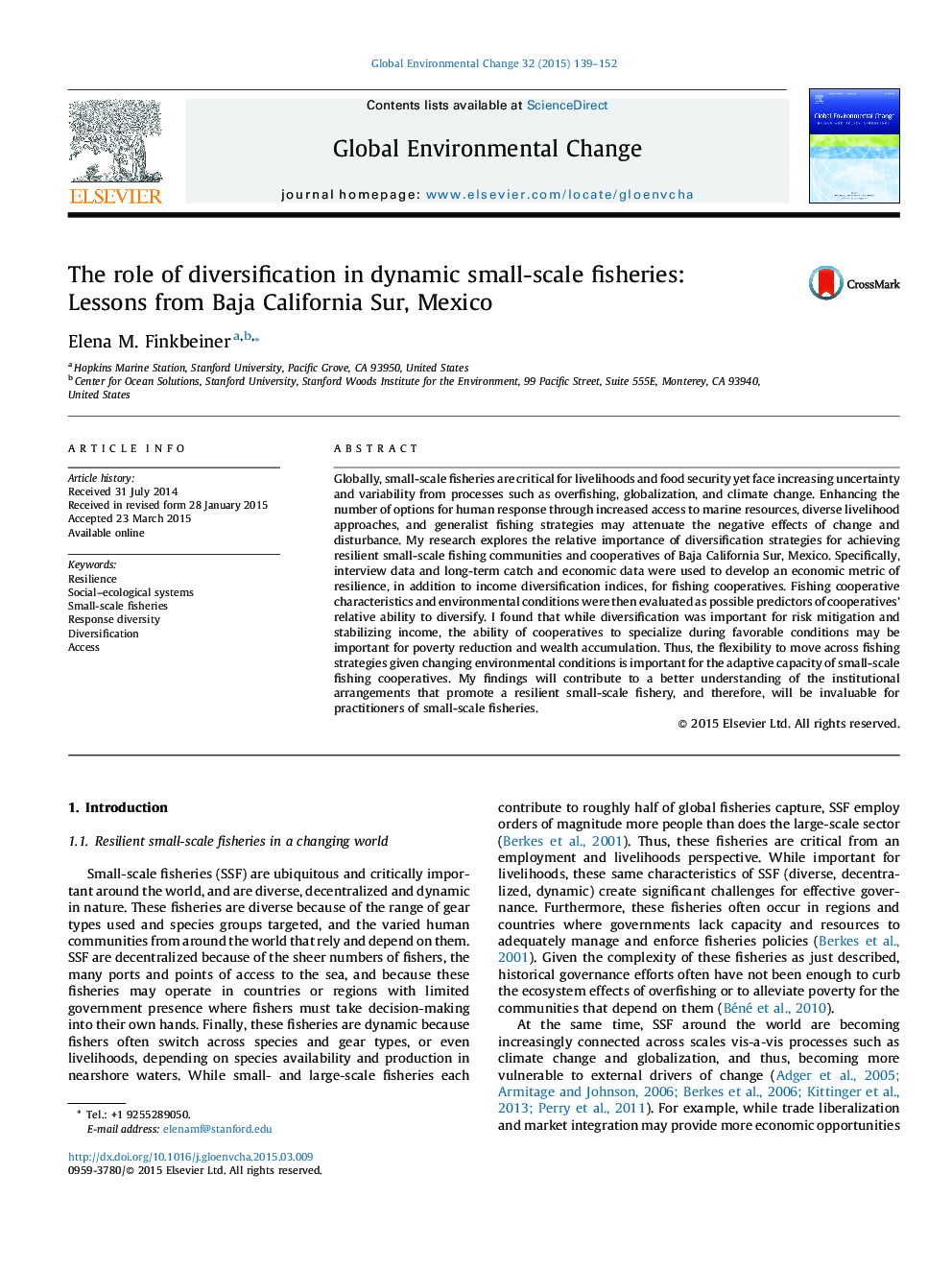| Article ID | Journal | Published Year | Pages | File Type |
|---|---|---|---|---|
| 7469999 | Global Environmental Change | 2015 | 14 Pages |
Abstract
Globally, small-scale fisheries are critical for livelihoods and food security yet face increasing uncertainty and variability from processes such as overfishing, globalization, and climate change. Enhancing the number of options for human response through increased access to marine resources, diverse livelihood approaches, and generalist fishing strategies may attenuate the negative effects of change and disturbance. My research explores the relative importance of diversification strategies for achieving resilient small-scale fishing communities and cooperatives of Baja California Sur, Mexico. Specifically, interview data and long-term catch and economic data were used to develop an economic metric of resilience, in addition to income diversification indices, for fishing cooperatives. Fishing cooperative characteristics and environmental conditions were then evaluated as possible predictors of cooperatives' relative ability to diversify. I found that while diversification was important for risk mitigation and stabilizing income, the ability of cooperatives to specialize during favorable conditions may be important for poverty reduction and wealth accumulation. Thus, the flexibility to move across fishing strategies given changing environmental conditions is important for the adaptive capacity of small-scale fishing cooperatives. My findings will contribute to a better understanding of the institutional arrangements that promote a resilient small-scale fishery, and therefore, will be invaluable for practitioners of small-scale fisheries.
Keywords
Related Topics
Life Sciences
Environmental Science
Environmental Science (General)
Authors
Elena M. Finkbeiner,
